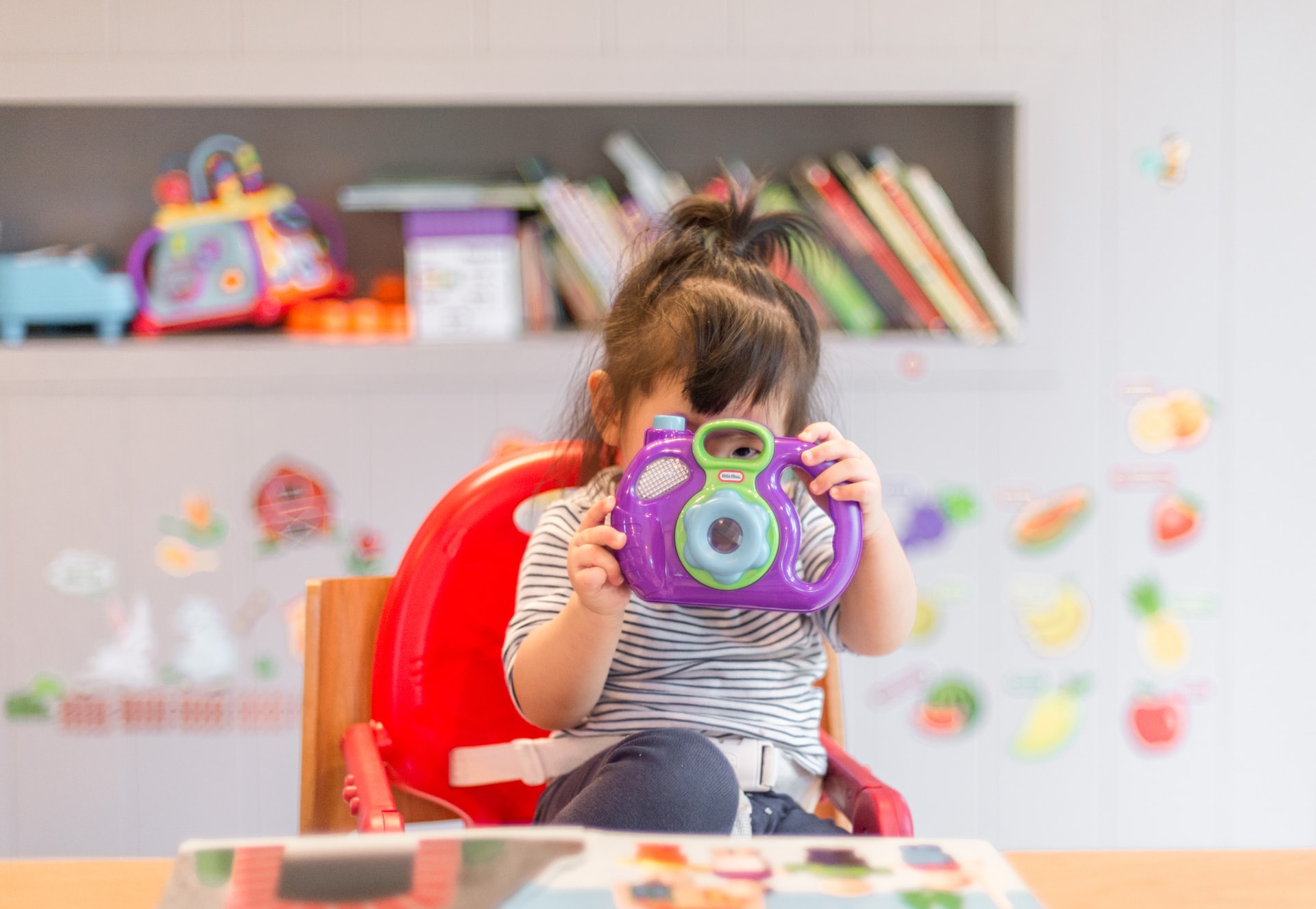Children don’t ‘mis’behave. They behave, either positively or negatively, to communicate. Small children communicate through their behavior because that is the only method of communication they have. Even when they become verbal, though, they still aren’t able to articulate big feelings and subtle problems well verbally, so as parents it’s our role to ‘listen between the lines’ of our children’s behavior to discern the need being communicated. Setting boundaries is not about ‘mis’behavior. It’s about guiding behavior, and guidance is something we provide through everyday interactions with our children. – L.R. Knost
Parenting the Difficult Child: The Hardest Job Known to Man
Parenting in any day and age is a difficult task. Creating a human being, being responsible for the way they process the world, shielding them from harm, helping them to create values, understand boundaries, and be kind to themselves and others, all the while still trying to show up as your best self is a daunting task.
 It is a wonder that parents can do it at all, especially in this age of technology and access to the world through the internet, social media, Facetime, Zoom, and more. While parents have a daunting task, so do children. Understanding yourself and the world around you as a child is complicated, scary, and can be overwhelming.
It is a wonder that parents can do it at all, especially in this age of technology and access to the world through the internet, social media, Facetime, Zoom, and more. While parents have a daunting task, so do children. Understanding yourself and the world around you as a child is complicated, scary, and can be overwhelming.
At every age, children are learning repeatedly and for some, it’s so overwhelming that they begin to communicate in ways that may be difficult to manage. If you are a parent, and you require help with a difficult child, please remember that this is a two-way street. As much pain as you may be feeling, your child may be feeling it as well.
Depending on the age of your child many different things could happen. During elementary school age, children are gaining logical and linguistic intelligence. But two of the most important types of intelligence are interpersonal and intrapersonal. Children honing these skills are learning about themselves, how to solve conflict in a healthy way, how to communicate their challenges, and how to understand their feelings.
When children are unable to develop these types of intelligence it makes it hard to deal with emotional challenges and most children begin to behave negatively. Especially, if they find that when they behave in this way they get more attention, more holding, and more care. The purpose of this article is not to figure out how to manage a difficult child but how to manage difficult interactions between your child and you, their friends, classmates, and society.
When little people are overwhelmed by big emotions, it’s our job to share our calm, not join their chaos. – L.R. Knost
Technology, Social Media, and Parenting the Difficult Child
Technology and social media have completely changed the way most people have been able to parent their children. The added pressures of internet/social media bullying, the desire to be like, look like, and follow celebrities, the rewiring of the brain due to increased stimulation, and the reduced need to interact with children in person make it difficult to understand your children and why they may be behaving negatively.
 Technology has created space for children to learn more, become more competent, and understand how the world around them works. But, as a child, to have so much information literally through an app can be overwhelming, and can increase self-image issues and discontent.
Technology has created space for children to learn more, become more competent, and understand how the world around them works. But, as a child, to have so much information literally through an app can be overwhelming, and can increase self-image issues and discontent.
The iPad, iPhone, Apple watch, and video games can occupy children for hours on end, which means before all this technology, which would have been a time when children would be learning to interact with other children, their families, and problem-solving with board games, etc.
Technology has also taught today’s children that because everything is so accessible, it should always be accessible within a moment’s notice. The art of patience and working hard to accomplish something has declined because with a touch or a click everything is ready to go. Children are also exposed to many opinions from the outside world which may impact how they think about themselves and how they begin to love and be kind to themselves.
Ten Ways to Help Your Child’s Interactions
1. Understanding Your Part
Children are constantly learning throughout the day without any help from adults. They are learning proper language, boundaries, what’s acceptable, and how to love people. Understanding your part means knowing how you impact your child, directly and indirectly, and how your words, actions, and expectations teach your difficult child about how you see them and how they should see themselves.
2. Reframing Your Language

How you frame things as an adult and a parent is one of the most important life skills. Most people never really think about how they say certain things. Maybe the important things they do, but everyday things, are hardly on the radar. Something as simple as, “Hurry up or you’ll make us late” says to a child you are the reason this is happening. “You are a difficult child,” says to the child that something is wrong with them versus something is wrong with their behavior.
We learn as we grow older that change, healing, and encouragement can be in the stories we tell ourselves, and how we frame our language. We also learn that destruction, despair, and hopelessness can be in the stories we tell ourselves framed by the same language. Children must understand that the behavior is bad, not them. The only way to help them understand that is in the language used and the actions shown.
3. Unconditional love and support
Despite the challenge, behavior, or incident, children must know that they will still receive unconditional love, care, and support. This doesn’t mean a lack of consequences or boundaries, but it does mean continuously affirming that they are loved, are healthy individuals, and have valid emotions even if their actions are ineffective.
4. Consequences and rules / expectations / boundaries
Children need boundaries, rules, routines, and expectations. They need to learn, understand why, and see them enforced to be able to commit them to memory. If a child continues to behave negatively and dismisses the rules and boundaries, they may need to suffer the consequences. If you are unsure of what may be helpful and effective, I would suggest speaking to a behavioral therapist, or a children’s therapist to focus on creating some.
5. Social support / community
Both children and their parents need support and community. For the child, it can be a space to help build them up and help them to gain intrapersonal and interpersonal intelligence. For the parents, it can be a support group, social outings, etc. to help the parents to be able to relax, take a break, and feel supported by others who may be experiencing the same things.
6. Therapy – individual / group
Individual therapy for the child and family therapy for the family may help the parents gain insight into the child’s behavior and thought process. Individual therapy for children is beneficial because it’s a space just for them, where they have more autonomy and get the chance to work out real-life frustrations.
Family therapy is also helpful for the parents to understand that the child is not the issue and that they are not the issue. The issue is behavior, the interactions, and the challenges, and the issues can be fixed.
7. Sport / group activity
Various studies have shown that sports and interactive activities have been shown to help children to become more disciplined, learn how to work with others, manage their own emotions, and problem-solve in a healthier way. Group-oriented sports and activities help the children to develop more ideas about how to manage their inner conflict and create friendships as well.
8. Arts / dance / music
The arts have been proven to help children to report the inner workings of their minds and souls. The rhythm of dance, lyrics of songs, and painting, drawing, or building can all speak to how a person is feeling, experiencing the world, and what that challenge may be connected to. Introducing art may help give the child new skills to use to communicate instead of negative behavior.
9. Be transparent, vulnerable, and patient
 Treating your child as a human can help engage your child and break their defenses down. Being open about how you’re feeling may permit them to be open about how they’re feeling. The key to being open is patience. The key to patience is understanding your goal. The key to understanding your goal is processing your own emotions and thoughts. The key to that is mindfulness, awareness, and internal work.
Treating your child as a human can help engage your child and break their defenses down. Being open about how you’re feeling may permit them to be open about how they’re feeling. The key to being open is patience. The key to patience is understanding your goal. The key to understanding your goal is processing your own emotions and thoughts. The key to that is mindfulness, awareness, and internal work.
Why are you triggered? What have you experienced? Why is it easier to yell? Why is it easier to label the child as difficult? Processing and reflecting on your emotions, thoughts, actions, and past challenges will help create space to be vulnerable and patient with your child.
10. Church/Spiritual Affiliation
Having a spiritual or religious space can help to increase hope, faith, and encouragement in managing some of these difficult behaviors. Having a space where you can turn to other parishioners or your pastor for guidance and support is so helpful for believing that you can help your child to change their behavior. Knowing that God knows all, understands all, and will be your strength in a hard time is helpful.
Take-Home Thoughts
Lead with love and understanding. As much guidance, discipline, and boundaries as children need, they equally need love, care, validation, forgiveness, and great models of how to become healthy adults. There is a balance between managing a child’s behavior and managing your behavior as a parent.
How you talk to your child, how you reframe the language, how you listen to them, and how you show forgiveness and love are important models that children learn as early as toddlers. There are so many changes happening within the human body from newborns to Adults twenty-five years of age.
You do not have a difficult child – you have a child who lacks the awareness or understanding to communicate challenges, emotions, and thoughts. Part of caring for your small human is teaching them how to manage their emotions and thoughts, and feel comfortable enough to talk to someone when they are not able to.
You have a hard job, one of the hardest ever created. No one, except maybe other parents, know what it is like for you. The same frustration, confusion, and helplessness you feel is a variation of what your child might feel as well.
The only difference is that most people validate the frustration of parents and adults, but not those of children. Be active in being patient, and vulnerable when it comes to your child’s behavior. Be active in supporting them through their negative behavior.
Let love always lead you to listen more deeply, understand more fully, connect more securely, forgive more freely, communicate more clearly, and respond more gently. – L.R. Knost
“Surprise”, Courtesy of Ben White, Unsplash.com, CC0 License; “Hanging with Mom”, Courtesy of Children Nature Network, Nappy.co, Public Domain; “Little Queen”, Courtesy of Senjuti Kundu, Unsplash.com, CC0 License; “Budding Photographer”, Courtesy of Tanaphong Toochinda, Unsplash.com, CC0 License

